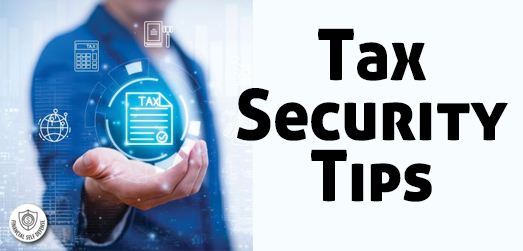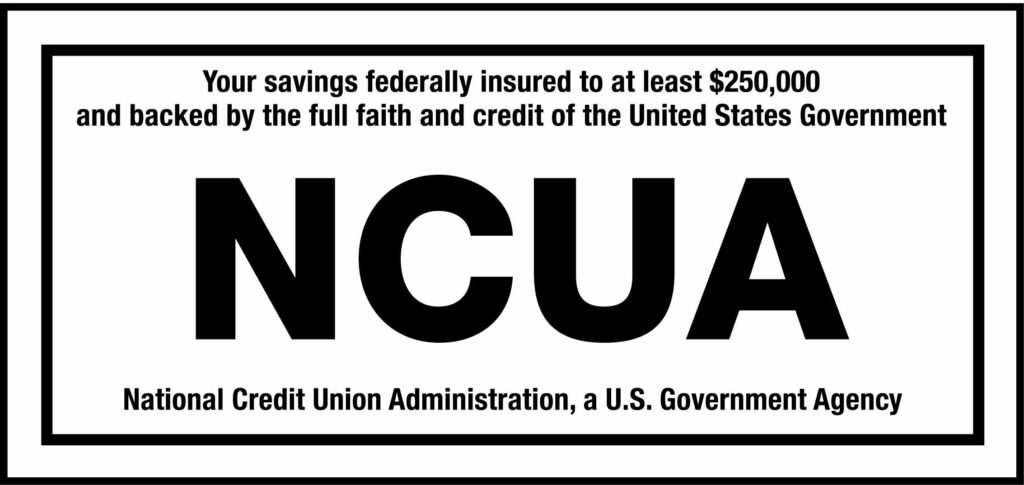Avoiding Tax Scams
Tax Scams and Security Tips

It’s tax season, so that, of course, means scams are rampant. Follow these tax security tips to help you stay safe and secure this time of year.
File your taxes early
By filing early, you reduce the window of opportunity for scammers to file a fake return using your info. If it’s too late for you to file early, consider filing for an extension to give yourself more time to prepare your return.
Keep your Social Security number (SSN) safe
Your SSN is a valuable piece of personal information for identity thieves. To keep it safe, avoid carrying your Social Security card with you and never unnecessarily share your SSN. When filling out tax forms, double-check your SSN to ensure it’s accurate. If you suspect your SSN has been compromised, contact the Social Security Administration ASAP! Additionally, if you receive a notice from the IRS suggesting that someone else has already filed a return using your SSN, contact the IRS and follow their instructions to resolve the issue.
Use strong, unique passwords when filing taxes
Your online tax accounts contain sensitive information, so it’s important to use strong passwords that are difficult to guess. It’s also essential to use different passwords for each account. This way, if one account is compromised, your other accounts won’t also be at risk. Finally, enable two-factor authentication whenever possible to add an extra layer of security to your accounts.
Be wary of phone scams
Phone scams are a common tactic used by scammers to trick people into revealing their personal and financial data. These scammers often pose as IRS agents and threaten legal action if you don’t pay an alleged tax debt immediately. If you receive a suspicious call, hang up and report it to the IRS.
Secure your mailbox
Identity thieves do more than just plunder your online info. They also look for sensitive information in mailboxes. Make sure your mailbox is secure and is emptied daily. For the best security, consider using a locked mailbox or a P.O. box for protecting your mail.
Use secure Wi-Fi networks
When filing your taxes online, be sure to use a secure Wi-Fi network to prevent hackers from intercepting your information. Avoid using public Wi-Fi networks, as they can be easily compromised. Instead, use a secure, password-protected Wi-Fi network you trust.
Beware of tax scams
Scammers love tax season, when there’s ample opportunity to trick people into revealing their personal and financial information. Be wary of any unsolicited emails, phone calls or text messages claiming to be from the IRS or other tax entities. Also, be skeptical of any promises of big refunds or threats of legal action. If it sounds too good to be true, or unbelievably urgent, it probably is.
With tax season upon us, it’s important to be aware of the various tax scams that could potentially steal your identity or money. Scammers love to take advantage of people during this time of year, so it’s crucial to stay informed and vigilant to protect yourself. In this article, we’ll explore some common types of tax scams and provide advice on how to avoid them.
-
Phishing scams
Phishing scams are one of the most common types of tax scams. Scammers will typically send out an email or text message posing as a legitimate tax authority such as the IRS. They’ll often use intimidating or urgent language, urging you to click on a link or download an attachment to avoid penalties or legal action.
However, the link or attachment will often lead to a fake website that looks like the real deal. The website will ask you to enter personal or financial information, such as your social security number or bank account details. Once you’ve provided this information, the scammers can use it to steal your identity or money.
To avoid falling victim to phishing scams, never click on links or download attachments from unsolicited emails or text messages. Always double-check the sender’s email address or phone number to ensure it’s legitimate, and never enter personal information into a website that you’re unsure of.
-
Fake tax preparer scams
Fake tax preparer scams involve scammers posing as legitimate tax preparers, often offering their services at a discounted rate. They’ll ask for personal and financial information to file your taxes, but instead, they’ll use this information to steal your identity or money.
To avoid fake tax preparer scams, be sure to research any tax preparer you’re considering using. Look for reviews or recommendations from trusted sources, and make sure the preparer has a valid Preparer Tax Identification Number (PTIN) issued by the IRS. Always ask for a quote before agreeing to use their services and be wary of any preparer who asks for payment upfront or promises an unusually large refund.
-
Phone scams
Phone scams involve scammers calling you and posing as an IRS agent, threatening legal action or arrest if you don’t pay an alleged tax debt immediately. They may ask for payment via wire transfer, prepaid debit card, or gift cards.
The IRS will never ask for payment over the phone, nor will they threaten legal action or arrest. If you receive a suspicious call, hang up immediately and report the scam to the IRS.
-
Identity theft scams
Identity theft scams involve scammers stealing your personal information, such as your social security number, and using it to file a fake tax return in your name. They’ll then collect the refund before you’ve even filed your real return.
To avoid identity theft scams, protect your personal information as much as possible. Avoid carrying your social security card with you, and never share your social security number unnecessarily. Always double-check your social security number on your tax forms, and file your tax return as early as possible to reduce the risk of someone filing a fake return in your name.
-
Refund scams
Refund scams involve scammers offering to help you get a larger refund than you’re entitled to. They may ask for payment upfront or a percentage of your refund.
To avoid refund scams, be wary of anyone promising unusually large refunds or asking for payment upfront. Always use a reputable tax preparer and check their credentials before using their services.
By staying vigilant and informed, you can protect yourself from the various tax scams that are out there. Remember to always verify the legitimacy of any communication claiming to be from the IRS or another tax agency, and never share your personal or financial information without verifying the authenticity of the request. By filing your taxes early, keeping your SSN safe, using strong passwords, being wary of phone scams, securing your mailbox, and using secure Wi-Fi networks, you can minimize the risk of falling victim to tax scams. Take the necessary precautions, and don’t hesitate to seek help if you suspect you have been targeted by a scammer. Stay safe this tax season!
Banking With A Purpose
Much more than a catchphrase, our tagline is our passion, our reason why we do what we do. This is the impact of your membership with AGCU. Learn More About Banking with a Purpose




